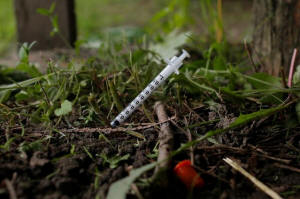|
Exclusive: States need U.S. help to
protect drug-affected infants - GAO
 Send a link to a friend
Send a link to a friend
 [February 08, 2018]
By Duff Wilson [February 08, 2018]
By Duff Wilson
NEW YORK (Reuters) - The federal government
needs to take more steps to help states protect infants born affected by
drugs such as opioids, the U.S. Government Accountability Office says in
a new report released Wednesday.
State agencies remain confused about a federal law requiring them to
report drug-affected infants to child protective services - not to
punish mothers but to help families and ensure the child’s safety, the
GAO says. Thirty-eight states said more guidance would be “extremely to
very helpful,” according to the report.
The GAO report was sparked by a 2015 Reuters investigation showing a
growing number of newborns diagnosed with drug-withdrawal syndrome from
opioids. Thousands of infants were sent home from hospital without the
“plan of safe care” required by a 2003 federal law, the news agency
found.

Reuters also found 110 cases of children since 2010 who were exposed to
opioids while in the womb and who later died preventable deaths at home.
Those deaths were largely accidental but typically at the hand of a
parent battling addiction.
The report comes on the eve of a U.S. Senate committee hearing Thursday
on opioids and children.
Senator Robert Casey of Pennsylvania, the top Democrat on the children
and families subcommittee, requested the report. He said he is drafting
legislation for a grant program to help families dealing with opioid
addiction.
“Every player in this effort has to be part of the strategy to focus on
infants,” Casey said in an interview Wednesday.
Absent a specific threat to a newborn’s safety, the GAO found, some
hospitals and state agencies don’t want to inform child protective
services about infants born with drugs in their systems, so long as the
mother is taking prescribed opioids such as methadone or hydrocodone.
“Health-care providers tend to view child welfare involvement as
punitive rather than a potential resource for the family,” one state
official told the GAO, the watchdog arm of Congress. Another said
reporting those cases would “further strain limited resources” on
“infants at low risk of abuse or neglect.”
[to top of second column]
|

A used needle sits on the ground in a park in Lawrence,
Massachusetts, U.S., May 30, 2017. REUTERS/Brian Snyder

In a response contained in the report, the Department of Health and
Human Services rejected the GAO's recommendation of greater federal
guidance, saying it was already doing enough to advise states. The
health agency said states needed “flexibility” to decide which
infants are “affected by” substance abuse and to define a “plan of
safe care.”
Child safety advocates remain concerned.
“States are sending up so many distress signals, and the federal
government seems oblivious,” said Cathleen Palm, founder of the
nonprofit Center for Children’s Justice in Pennsylvania.
Stephen Patrick, a Vanderbilt University pediatrics expert, is
scheduled to testify at the Senate committee hearing. “Our efforts
focused on pregnant women and infants impacted by the opioid
epidemic need to be better coordinated and funded,” Patrick said.
Former U.S. Representative Jim Greenwood, a Republican from
Pennsylvania who proposed the 2003 federal law for babies born
affected by drugs, said every state needs to ensure that those cases
are reported to child protective services.

“They are the ones who can help these mothers find the social
services they need for their babies to be safe,” he said.
(Reported By Duff Wilson. Edited by Blake Morrison.)
[© 2018 Thomson Reuters. All rights
reserved.]
Copyright 2018 Reuters. All rights reserved. This material may not be published,
broadcast, rewritten or redistributed.
Thompson Reuters is solely responsible for this content. |